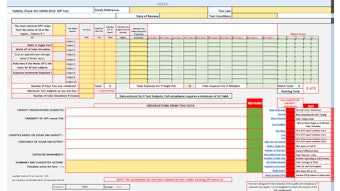
This commentary was written by industry expert Kelly Dobos in response to the U.S. Food and Drug Administration's (FDA's) proposed fee increase on the certification of color additives. It aims to break down this fee and how the 10 cent per pound increase is an approximate 30% increase on the current amount.
In the United States, color additives for cosmetics, as well as food and drugs, are divided into two categories for regulatory purposes.
Synthetic organic pigments, those historically referred to as “coal tar” colors, belong to the class that requires batch certification — every batch of those color additives must be tested by the FDA for purity and meet all the required specifications before the color additive can be legally used in any cosmetic or personal care item. Terms like FD&C (food, drug and cosmetic) and D&C (drug and cosmetic) can only be used in a color name if that batch of color has been properly certified. While the United States is the only country with a certification process, many global companies choose to use certified pigments because of the added layer of safety the certification process provides.
Previously: U.S. FDA Proposes Fee Increase to Certify Color Additives
Colorant manufacturers pay a fee to the FDA to help support the costs of the certification process, and just last week the FDA announced a proposed rule to raise the cost of certification, for the first time in nearly twenty years, by 10 cents per pound.
While this seems like a small increase at first, it represents a roughly 30% increase in cost over the current rate of 35 cents per pound. Increases in the cost to certify repacks and mixtures were also included in the proposal.
Like many other industries, the FDA cites inflation through operating expenses, e.g., for the maintenance of critical equipment and escalating wages, as reasons for the proposed change. The rule is open for public comment until Jan. 3, 2023 but in this author's view, the cost increase is likely long overdue since the last increase occurred back in 2005.










